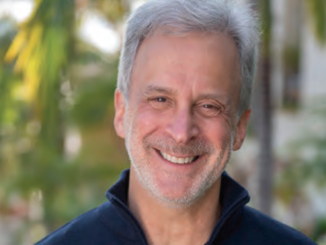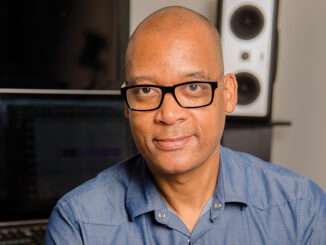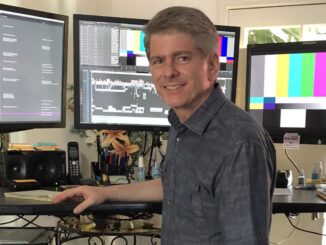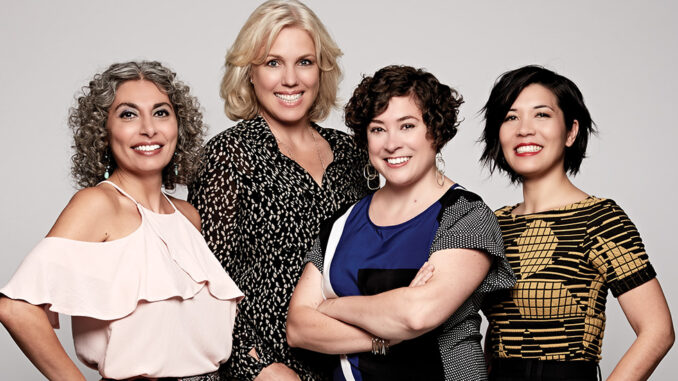
by Laura Almo
portraits by Chistopher Fragapane
The acclaimed web series Transparent, created by producer/writer/director Jill Soloway (Six Feet Under, 2001-05, and United States of Tara, 2009-11), has made waves on television and in the LGBTQ community. Not only has the show won numerous awards (Emmy, Golden Globe, Peabody, GLAAD, ACE Eddie and CAS, to name just a few), it has raised the visibility of the transgender community and shed light on its issues. Combining elements of comedy and drama, Amazon Studios’ Transparent (2014-present) is both funny and deeply moving as it simultaneously tackles challenging and often unseen or underrepresented struggles of trans life. >>>
It is also one of the most Jewish shows (TV, web or otherwise) around. This is by design. Based on Soloway’s own life experience of her father coming out as a transgender woman later in life, the show is set in Los Angeles, much of it on the Eastside, where Soloway is the co-founder of the Eastside Jews, a project now based at the Silverlake Independent Jewish Community Center.
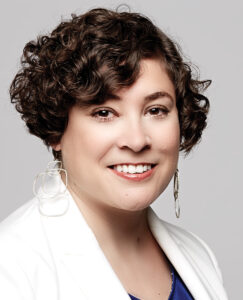
That center is also the link between Soloway and her longtime editor, Catherine Haight, ACE. The two met through a mutual friend, Bill Macomber, who was on the board of the SIJCC with Soloway. As Haight tells it, Soloway asked Macomber if he knew anyone who could cut some scenes she had shot. “Bill said, ‘You should meet Cate; I think you guys would get along.’ And the rest is history. We did in fact get along,” recalls Haight, who cut Soloway’s short film Una Hora Por Favora (2011) as well as her first feature, Afternoon Delight (2013), which earned the Directing Award at the Sundance Film Festival.
When Soloway began working on Transparent, she and Haight already had a great working relationship; the shorthand was there and the editor understood her style and directorial voice. This was helpful as Haight cut the series pilot (for which she was nominated for an ACE Eddie Award), and 14 of the 30 episodes in the first three seasons. What’s more, she worked closely with Soloway and screened every single episode to make sure the editorial style was consistent among the series’ other editors. Haight’s key involvement in the series earned her an associate producer credit on Seasons Two and Three.
Although acknowledging that working on Transparent was a very special experience —“It’s a really supportive, awesome environment where everybody really helps each other out” — Haight left the show last year after the third season. “I had been working with Jill for so long, I felt like I needed to leave the nest and try something different; I wanted to move into features,” she concedes. “But I loved working with Jill and all the editors on the show.”
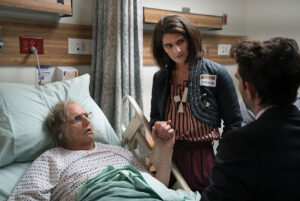
Amazon Studios
The show’s fourth season — which will drop September 22 — is edited by Hilda Rasula, Sunny Hodge and Christal Khatib. It continues to be a close-knit post-production team, as the editors have worked together in different permutations on other shows. Rasula, who began as Haight’s assistant on the pilot, was bumped up to editor at the end of Season One, when she was given a chance to edit an episode. Rasula (Chef School, 2008; Ruby, 2008-11; Rectify, 2013-16) credits Haight as both her mentor and a good friend who encouraged her to become the editor she is today. She has taken the reins of overseeing all the shows since she too has been there since the beginning.
Hodge (Melrose Place, 1992-99; The Big C, 2010-13; Private Practice, 2007-13) began working on Transparent with Season Two. A musician-turned-editor, she landed the gig through Haight. They met on Good vs Evil (1999-2000); when Hodge was bumped up to editor on the show, Haight was brought in as an assistant.
Filling the position vacated by Haight, Khatib is the newest addition to the Transparent editorial team. Most recently, she cut three episodes of I Love Dick (2016-present), Soloway’s latest project for Amazon. Before that, she spent many years editing shows like Commander in Chief (2005-06), The Big C and Private Practice.
The New Media Landscape
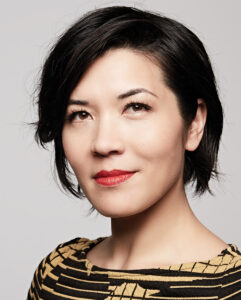
In June 2017, Rasula, Hodge and Khatib were deep in post-production in Transparent’s fourth season on the Paramount lot. The storyline is under wraps but reportedly will be more political than previous seasons. As with the past three seasons, all 10 episodes will be available for streaming simultaneously.
While this makes for some terrific binge watching, editorially speaking, this new model of episodic TV distribution changes everything. The entire season is delivered to Amazon at once, allowing the editorial team additional time to unlock shows, move things around, restructure and tweak things. “Because there is more room in the post schedule, and we are not up against airdates, we have a lot more flexibility in the editing,” says Rasula. “It’s a wonderful opportunity, story-wise, to move things around.”
In fact, cutting Transparent is more akin to editing a five-hour film than 10 half-hour-ish episodes (Amazon is accommodating with running times, although generally each episode runs 25-30 minutes). “Jill always said she thinks of each season of Transparent as a five-hour-long movie,” Rasula asserts.
Indeed, each season is like “one living, breathing thing that’s all interconnected,” according to Hodge, who reveals that there are times she might be working on two or three episodes at once. About midway through the editing process, all the editors will sit down with Soloway to watch how things are coming along. “If we discover something in later episodes that can be made more powerful by altering something in an earlier episode, we can go back in and make adjustments earlier on,” the editor adds.
Despite the freedom to restructure, tweak and move scenes between episodes, editorial does adhere to a post schedule so the sound team can do its work in a scheduled way. “It can get a little tricky because we do have to have an out date, but Amazon has been very supportive in a lot of ways with our process,” Hodge explains.
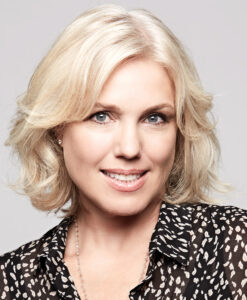
This model is becoming more common in the streaming world. Admittedly it can be challenging for editors who are used to working in network TV, where there is a system in place to lock one show and move on to the next one. But there are benefits to this new method, says Khatib, who has worked in episodic television for more than 15 years. “On a show like Transparent, where you don’t have 21 episodes to edit, you really get to make each one kind of perfect,” she says. “Having the whole season before you and being able to look at it all as one piece — the way the Amazon viewer will watch the show, most likely binging it — you really get the sense of the flow of the entire season before you lock everything.”
Gold Mining
As effortless as it is to binge-watch Transparent, editorially speaking the show is complicated and demanding. “There are definitely some challenges. It’s not an easy show to cut,” confides Rasula. “One thing Cate used to say is that Transparent is a show that has a heavy editorial hand; there’s quite a bit of flexibility in the way we cut the show.” In other words, unlike tightly scripted and conventionally shot shows, Transparent is more free-flowing.
There’s a looseness to the camera, which has to do with the way DP Jim Frohna shoots Transparent. “It’s very documentary-esque,” Rasula explains. “The cameras are free to move around the actors. If the camera operators want to flip around in the middle of a shot, they can — which means we get these shots with a lot more motion. This gives the shots a tactile, lived-in quality and it puts the viewer in the scene, which is part of the magic of that authentic feeling one gets from Transparent.”
Rasula acknowledges that the show’s shooting style, marked by a lack of conventional coverage, does cause problems on a technical level, so the editors have to be more adaptable and open-minded in how they choose to cut a scene. There is a lot of footage to sort through and continuity issues to solve. “It’s not always a cookie-cutter thing,” she says. “It forces us to think on our feet.”
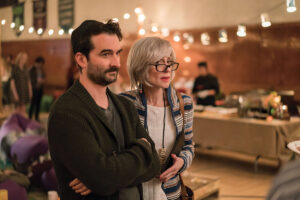
Amazon Studios
The editor considers her experience cutting documentaries to be an advantage in the Transparent cutting room. “What you do have are ‘magic moments’ — accidental gold mines that you stumble across watching the footage. You have to pan for it, dig it out and find that gold,” Rasula elaborates. “Once you see a wild camera movement, or one crazy moment with a character that you weren’t expecting because it wasn’t in the script, you’re like, ‘Oh my god, the whole scene needs to lead to this!’”
Hodge adds, “I personally try to just find the gold, and mark all of the best moments within each take. I try to figure out a way to make sure that all those moments are in the scene.” Expounding upon her process, she says, “There are times when I’m watching dailies and I might laugh, cry or feel moved in one way or another. If I put the scene together and I don’t feel that in the cut scene, then I know I’ve done something wrong.”
Hodge’s musical background aids her in solving editorial problems and influences her cutting style. “If I have a thing as an editor, I suppose it would be music,” she reveals, explaining that possessing a natural ear for rhythm comes in handy for cutting music and building a temp score, of which there is quite a bit on Transparent. But she finds it’s helpful in the actual process of building a scene as well: “I think having a strong musical sense makes it easier to feel and figure out where things are off, and also to lock into a rhythmic pocket of a scene.”
Risk-Taking in the Cutting Room
When Khatib joined the Transparent editorial team for Season Four, on the first day of work she went into a meeting, and recalls, “The first thing Jill said to me is, ‘No one’s in trouble,’” which for Khatib was a godsend. “It’s the greatest gift to be able to express myself creatively without worrying that I’m doing something wrong.”
Soloway’s ethos is to try everything and not worry about being wrong. She and the show’s other producers encourage everyone working on Transparent to take risks, “to explore the weird and bizarre,” and, above all, to trust your instincts, according to Rasula. People from every department, but especially picture editorial, are encouraged to explore even the strangest, deepest, most unusual parts of themselves.
Apparently, the only rule is to keep it entertaining, funny and emotional without being overly dramatic. “I think the most important thing I can do to tell the story is to be with the characters as their beat changes occur,” Khatib offers. “It’s important to see the look in someone’s eyes change if she or he is going from sad to happy, or from happy to heartbroken.” The editor says her job is to stay on characters so viewers see the shift as it happens, an important storytelling technique she learned from working with Soloway.
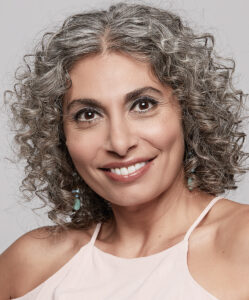
As for crafting performances, Khatib chuckles when she says, “I’m editing Jeffrey Tambor [two-time Emmy Award winner and nominee again this year for Outstanding Lead Actor in a Comedy Series for the transgender character Maura], Gaby Hoffman, Judith Light [both Emmy nominees] and others. Every one of these actors is incredible. No one really needs a performance ‘crafted,’ but I can definitely help streamline the story.” She describes the editing process as more of a “shaving away” of the performances: “I’m trimming the fat, while trying to stay with it when it’s the really juicy, meaty portion of the performance.”
Transparent is more than just a TV — or web — show. “It’s creating social change that we are seeing in the world right now,” observes Hodge, “and it’s so exciting and rare to be editing a show that is at the forefront of that change.” Indeed, the series pushes the boundaries socially, politically — and editorially.
As an overlap of artsy and feminist ideals, it’s no wonder the show has been celebrated with many honors, including a 2015 Peabody Award “for its unflinching, kind and luminous examination of the meaning of love, family and truth,” and GLAAD’s (Gay & Lesbian Alliance Against Defamation) Media Award for Outstanding Comedy Series for 2015 and 2016. It’s not just Transparent’s writing, directing, acting, cinematography, editing and sound for which the series has been honored, but something more.
With the show’s inclusive approach to staffing the crew for the series, including transgender and non-binary individuals, and many women, Soloway wants personal experience to be a part of the storytelling, explains Hodge. “Jill really encourages the editors, and all the creative forces on the crew, to bring our voices to the story,” she attests. “[The producers] want to hear them. I think it’s the culmination of all these voices that results in something really special and magical — and that is Transparent.”



